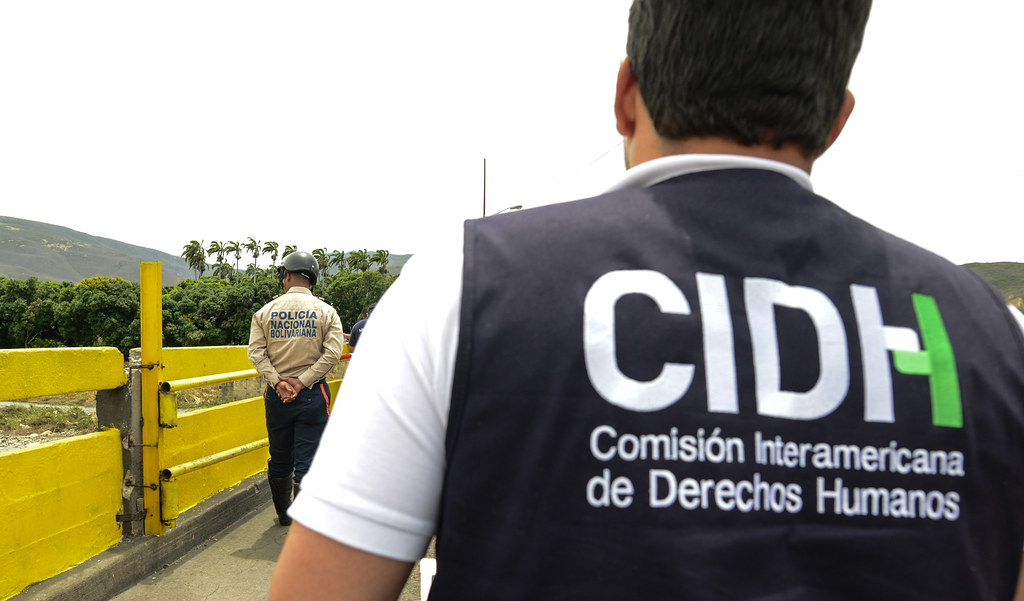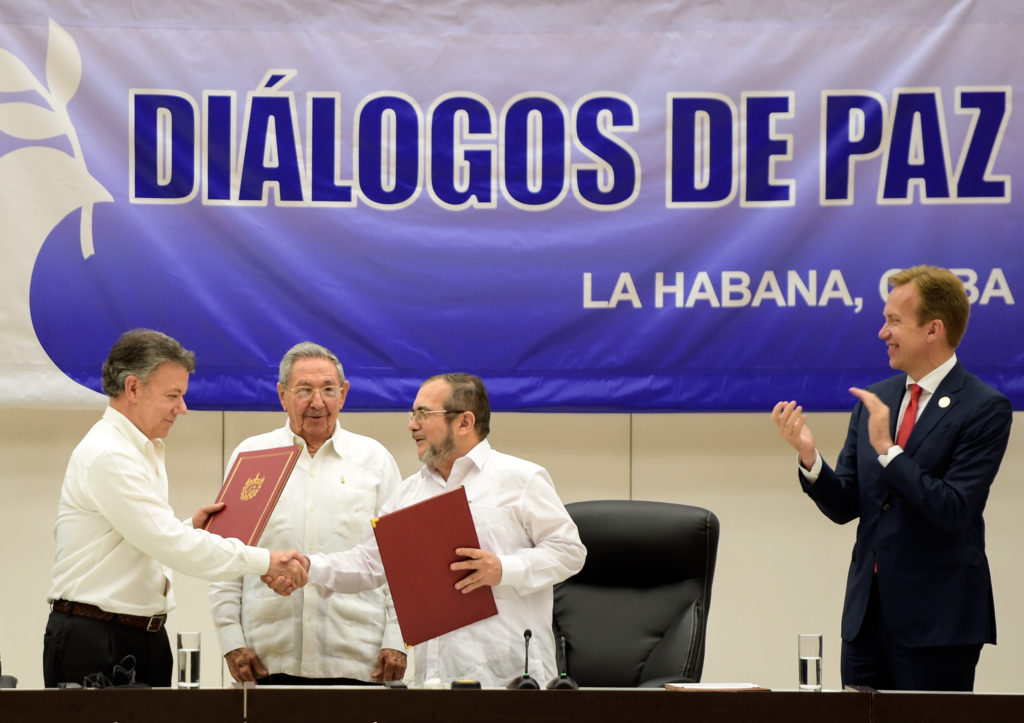
The Inter-American Commission on Human Rights (IACHR) will visit Colombia between April 15 and 19 of this year to verify compliance with the Peace Agreement, signed in 2016, between the State and the extinct FARC-EP guerrillas. The action of the international organization comes in response to the invitation made by the Colombian government and is the first on the ground since 2012.
According to the IACHR itself, the objective of the visit is “to observe the impacts of the different forms of violence on the human rights situation, with special attention to the ethnic-racial and gender dimensions.”
In this sense, in addition to compliance with the peace signed almost eight years ago, the human rights delegation will also examine “citizen security, from the perspective of the various manifestations of violence and the state response to this problem”.
Visit “in loco”
The delegation’s visit will be “in loco” (on the ground). Specifically, the nine members of the commission will visit Bogota and the departments of Antioquia, Cauca, Choco, La Guajira, Magdalena, Nariño, Putumayo and Valle del Cauca.
On the ground, the international delegation will meet with representatives of the government, but also with delegates from different parts of the country, such as representatives of civil society, social leaders, human rights activists, labor unions, business associations and political parties.
The IACHR will present its preliminary observations at the end of its visit, at a press conference for journalists and the media on Friday, April 19, at a place and time to be determined.
Channels of participation
The IACHR’s official web page informed that it will soon explain the channels to encourage social participation in this visit to Colombia. All those individuals, communities or entities that wish to provide “relevant information” may do so by e-mail or through the digital channel of the organization’s website.
The Inter-American Commission also thanked “the invitation and willingness of the Colombian State to carry out this visit, as well as the logistical facilities it will provide for its realization”. The IACHR has affirmed that with this invitation, “the State reaffirms its commitment to international scrutiny and the protection of human rights”.
2016 Peace Agreement
The 2016 peace agreement was reached after four years of dialogues between the Colombian State, presided by Juan Manuel Santos, and the guerrilla of the Revolutionary Armed Forces of Colombia (FARC-EP). As a result, that year the oldest guerrilla group in the country and the continent agreed to disband and become a legal and democratic political party.
The Havana document was articulated around five axes: comprehensive rural reform; political participation; end of the conflict; solution to the problem of illicit drugs; and victims. Although it had significant international acceptance and support, which in fact earned President Santos the Nobel Peace Prize, support in Colombia itself was lacking.
While the conservative government of Juan Manuel Santos endorsed at all times an agreement that had the support of the political forces of the left and center, an important conservative faction, led by the Democratic Center party of former President Alvaro Uribe (2002-2010), showed a frontal opposition that continues to this day. In fact, during the administration of Ivan Duque (2018-2022), a member of the Democratic Center, compliance with the agreements was poor, which led to complaints inside and outside Colombia.
With the beginning of Gustavo Petro’s presidency in August 2022, the State’s intentions changed, developing a rural reform that is still far from what was agreed upon in the peace agreement.

In defense of Human Rights
The IACHR is a principal and autonomous organ of the Organization of American States (OAS), whose mandate derives from the OAS Charter and the American Convention on Human Rights. The Inter-American Commission is mandated to promote the observance and defense of human rights in the region and acts as a consultative body to the OAS in this area.
The 65-year-old entity is composed of seven independent members who are elected by the OAS General Assembly in their personal capacity and do not represent their countries of origin or residence.
The Commission ensures the protection of the rights of all persons under the jurisdiction of the American States, especially the protection of those populations that have historically been subjected to discrimination, thus focussing attention on communities and peoples in situations of vulnerability
To carry out its functions, the IACHR has the legal and administrative support of its Executive Secretariat. In accordance with Article 13 of the Rules of Procedure of the IACHR, the Executive Secretariat prepares draft reports, resolutions, studies and other work entrusted to it by the Commission or the President. The Executive Secretariat also receives and processes correspondence and petitions and communications addressed to the Commission.
See all the latest news from Colombia and the world at ColombiaOne.com. Contact our newsroom to report an update or send your story, photos and videos. Follow Colombia One on Google News, Facebook, Instagram, and subscribe here to our newsletter.

